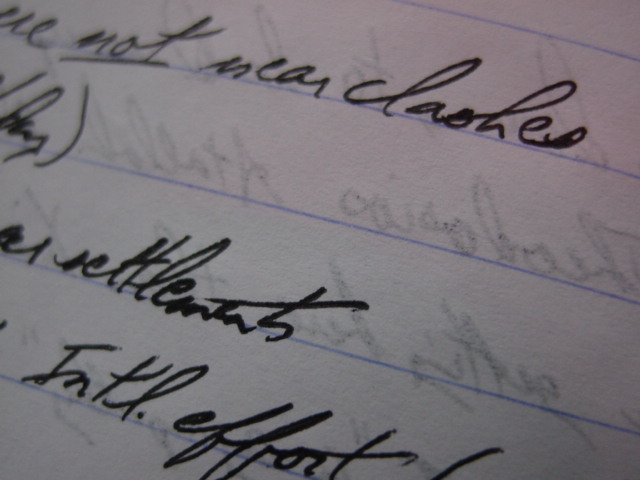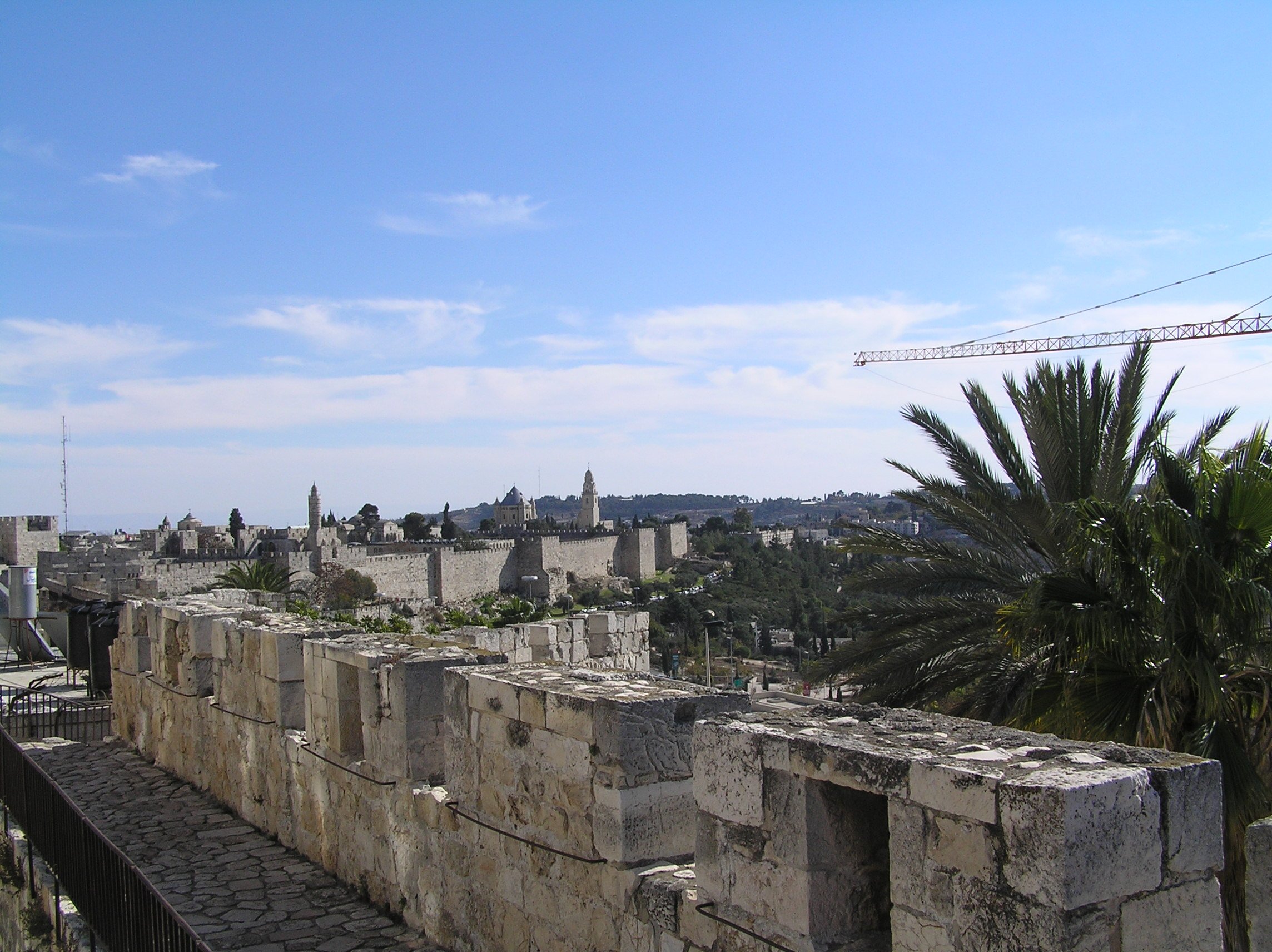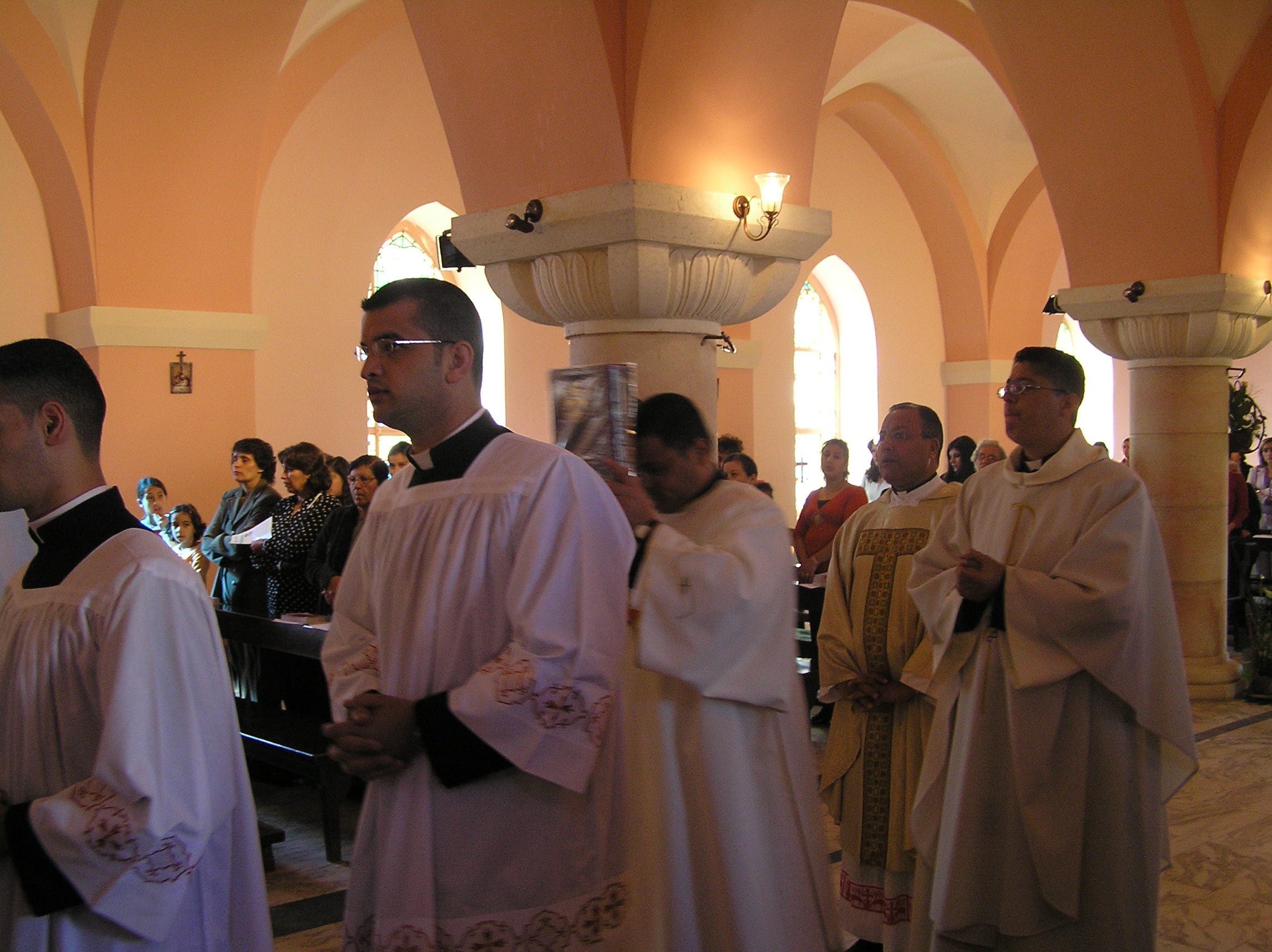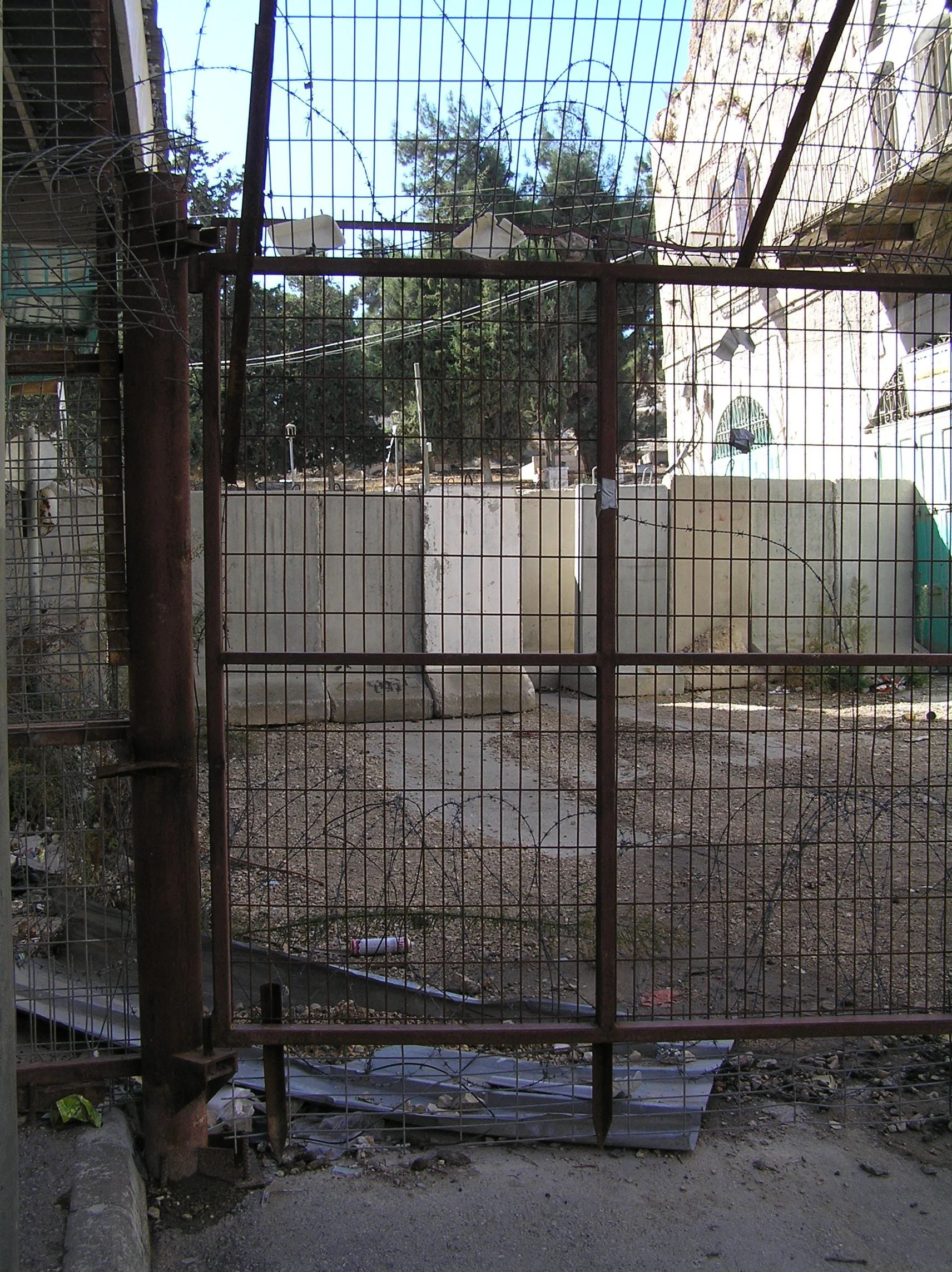November, 2005
The problems began when I boarded the Palestinian bus in Jericho. There, Palestinians are separated from their luggage. After a document check by the Palestinian Authority, the bus enters into the Israeli-controlled border crossing.
In the evening, I visited with the new Mennonite Central Committee volunteers living here and teaching English at the school. Before coming, they had done a Google search for Zababdeh, finding our website. Before arriving, they had worked their way through the first year and a half of our daily journal archives.
Essentially, Palestinian society is facing three major problems. The Israeli Occupation is still the primary obstacle, and the chaos it creates in Palestinian society has deep repercussions. But is far from the only problem.
The bulldozer ripped off much of the building's facade, including two balconies. Explosives blew off the iron doors. With the intervention of church leaders in town, finally, the Army backed off. They sent in the K-9s. In the end, no one was in the building.
In some ways, it seems that the cult of martyrdom has given way to the cult of democracy. But if the pictures tell us anything, both are fading quickly.
Advocacy and diplomacy continue. Economic development moves forward, despite the obstacles. In a word, there is vision.
The story of dispossession is deeply embedded in the Palestinian psyché. It is an integral part of Palestinian identity. For many Palestinians, what happened in 1948 is part of a long narrative of loss that continues until today.
Senator Clinton spoke of Israel's wonderful efforts to defend itself with minimal disruption to Palestinian life. I was two miles away, on the other side of this "fence," meeting with church partners and leaders of civil society. We discussed in great detail and with great nuance the grievous harm the Wall is doing to Palestinian life, as we strategized what could be done with these facts cemented in place.
After worship, members of the congregation greeted me: "Thank you for all that you are doing." "May God strengthen you!" "We are extremely grateful to the Presbyterian Church."
Jerusalem is not just a symbol, not just an idea. It is, first and foremost, a place where people live. It is for the sake of these people that we should seek peace.
I'll be spending the next few days with several colleagues meeting with church partners and economists to get their analysis on the economic situation in Gaza, the West Bank, and East Jerusalem.
In every direction, Israeli settlements loom. Fingers of these settlements reach out along the crest of the hill to connect with the next one. Daoud is surrounded.
Everything in the context of Israel/Palestine is infused with the political. One cannot visit Yad v’Shem, the Holocaust Memorial in Jerusalem, without seeing it through the lens of the current conflict. But as much as extremists on either side wish to identify their enemy with the Nazis, the comparison is unhelpful at best; at worst, it dances on the graves of the victims of genocide.
"It's very nice that you cry," one professor remarks. "But you are still complicit, because it is your taxes which are supporting this Occupation."
As for the mounting unsolved crimes in Mahatta, Tamer references Israel’s concern about the Palestinian birth rate in Israel. “For them, it’s not a problem if I die. But if I’m born, that’s a problem.”
The Wall has been built. It is being extended. It offers no peace for Israelis outside it, and no justice for Palestinians trapped within it.
These Israelis, who sing for peace. Do they really know what makes for peace? Do I really know what makes for peace? Do any of us really know what makes for peace?
“The success of violent resistance as a strategy is a valid debate,” he tells us. “But there is no question about the success of non-violent resistance. Our goal is not simply to end the Occupation, but to build civil society afterwards.”
It is a barrier, that much is certain: a barrier to peace, to dignity, to reason.
But it is clear that the larger obstacle he and all Palestinians face is the Israeli Occupation. While the town of Jericho is subject to the Palestinian Authority, 95% of the region Dr. Musallem governs is under total Israeli control.






















